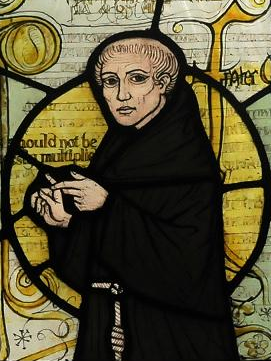Vol. I, Book 1, Ch. 2.
Dialogus (1494)
Контексте: The Holy Spirit through blessed John the evangelist makes a terrible threat against those who add anything to or take anything from divine scripture when he says in the last chapter of Revelations [22:18–9], "If any man shall add to these things, God shall add unto him the plagues which are in this book. And if any man shall take away from the words of the book of this prophecy, God shall take his part out of the book of life and out of the holy city, and from these things that are written in this book." We clearly gather from all these that nothing should be added to sacred scripture nor anything removed from it. To decide by way of teaching, therefore, which assertion should be considered catholic, which heretical, chiefly pertains to theologians, the experts on divine scripture.
You see that I have set out opposing assertions in response to your question and I have touched on quite strong arguments in support of each position. Therefore consider now which seems the more probable to you.
